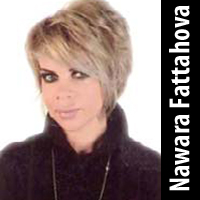
holy month of Ramadan has many special habits and rituals, even for non-Muslims living in Kuwait. Apart from worship, which includes taraweeh and qiyam prayers and reading the Holy Quran among others, people do good deeds such as giving alms, distributing food to people in need and so on.
Ramadan has a special atmosphere that is only felt during this month. We call it the month of forgiveness, as people try to forgive the mistakes of the past and renew their relations, especially with relatives and friends. It's also called the month of gathering, as the entire family will gather for iftar, usually at the grandfather's house.
Staying at home most of the time is also common during Ramadan. TV viewership rises during Ramadan, so producers focus on this month, which is considered the high season for soap operas. Since we were kids, we used to watch soap operas during this month, but we only had a few channels. Today there are hundreds of channels and tens of new soap operas specially produced for the Ramadan season.
Besides soap operas, live TV competitions are an essential part of Ramadan's activities. The production of these competitions has also developed with time. In addition to those produced in studios, some competitions are shot in shopping malls and outdoor locations.
Walking and jogging before iftar is a very common practice in Kuwait. So walking paths in residential areas and near the seaside are crowded before sunset. Football tournaments are part of the Ramadan atmosphere as well. This practice started over 30 years ago, and inspired some companies and businessmen to support these small individual tournaments, so they became popular.
This holy month has its special dishes, sweets and drinks. In Kuwait, the most popular drink is Vimto. This syrup is an essential part of the Ramadani table. If we drink it at some other time of the year, we always say it's a Ramadani drink, as it reminds us of Ramadan. The same applies to luqaimat - extra-sweet crunchy balls - which symbolize Ramadan. Lentil soup is also a must on most days of this month.
The Ramadan cannon is a part of Kuwaiti culture, which spread to neighboring countries. Firing the cannon just before the Maghrib azan at the time of iftar is also broadcast live, so people can hear it even when at home. The ghabqa - which is the meal between iftar and suhoor - is also part of our traditions in Kuwait.
People gather for this meal, which is sometimes held in ballrooms or restaurants. Some companies used to hold ghabqas for their employees, and even media people used to gather at this event annually. Unfortunately, the pandemic has canceled these kinds of activities due to the curfew and ban on gatherings.
[email protected]



